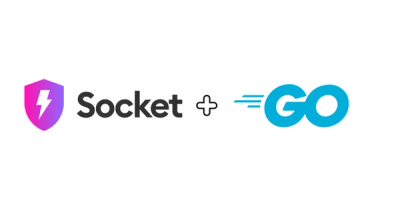
Research
npm Malware Targets Telegram Bot Developers with Persistent SSH Backdoors
Malicious npm packages posing as Telegram bot libraries install SSH backdoors and exfiltrate data from Linux developer machines.
@turf/flatten
Advanced tools
@turf/flatten is a module in the Turf.js library that is used to flatten any GeoJSON object into a FeatureCollection. This is particularly useful when dealing with complex nested geometries and you need to simplify them into a flat structure.
Flattening a MultiPolygon
This code demonstrates how to flatten a MultiPolygon into a FeatureCollection of Polygons. The input is a MultiPolygon, and the output is a FeatureCollection with each Polygon as a separate feature.
const turf = require('@turf/turf');
const multiPolygon = turf.multiPolygon([[[[0, 0], [10, 0], [10, 10], [0, 10], [0, 0]]], [[[20, 20], [30, 20], [30, 30], [20, 30], [20, 20]]]]);
const flattened = turf.flatten(multiPolygon);
console.log(flattened);Flattening a MultiLineString
This code demonstrates how to flatten a MultiLineString into a FeatureCollection of LineStrings. The input is a MultiLineString, and the output is a FeatureCollection with each LineString as a separate feature.
const turf = require('@turf/turf');
const multiLineString = turf.multiLineString([[[0, 0], [10, 10]], [[20, 20], [30, 30]]]);
const flattened = turf.flatten(multiLineString);
console.log(flattened);Flattening a GeometryCollection
This code demonstrates how to flatten a GeometryCollection into a FeatureCollection of individual geometries. The input is a GeometryCollection, and the output is a FeatureCollection with each geometry as a separate feature.
const turf = require('@turf/turf');
const geometryCollection = turf.geometryCollection([
turf.point([0, 0]),
turf.lineString([[10, 10], [20, 20]]),
turf.polygon([[[30, 30], [40, 40], [50, 50], [30, 30]]])
]);
const flattened = turf.flatten(geometryCollection);
console.log(flattened);The geojson-flatten package provides similar functionality to @turf/flatten by flattening nested GeoJSON objects into simpler structures. It is a lightweight alternative but does not offer the extensive suite of geospatial analysis tools that Turf.js provides.
The geojson-utils package offers various utilities for working with GeoJSON data, including flattening nested structures. While it provides some similar functionalities, it is more of a general-purpose toolkit for GeoJSON manipulation rather than a specialized library like Turf.js.
Flattens any GeoJSON to a FeatureCollection inspired by geojson-flatten.
Parameters
Examples
var geometry = {
"type": "MultiPolygon",
"coordinates": [
[[[102.0, 2.0], [103.0, 2.0], [103.0, 3.0], [102.0, 3.0], [102.0, 2.0]]],
[[[100.0, 0.0], [101.0, 0.0], [101.0, 1.0], [100.0, 1.0], [100.0, 0.0]],
[[100.2, 0.2], [100.8, 0.2], [100.8, 0.8], [100.2, 0.8], [100.2, 0.2]]]
]
};
var flattened = turf.flatten(geometry);
//=flattened
Returns FeatureCollection a flattened FeatureCollection
This module is part of the Turfjs project, an open source module collection dedicated to geographic algorithms. It is maintained in the Turfjs/turf repository, where you can create PRs and issues.
Install this module individually:
$ npm install @turf/flatten
Or install the Turf module that includes it as a function:
$ npm install @turf/turf
FAQs
turf flatten module
The npm package @turf/flatten receives a total of 645,582 weekly downloads. As such, @turf/flatten popularity was classified as popular.
We found that @turf/flatten demonstrated a healthy version release cadence and project activity because the last version was released less than a year ago. It has 0 open source maintainers collaborating on the project.
Did you know?

Socket for GitHub automatically highlights issues in each pull request and monitors the health of all your open source dependencies. Discover the contents of your packages and block harmful activity before you install or update your dependencies.

Research
Malicious npm packages posing as Telegram bot libraries install SSH backdoors and exfiltrate data from Linux developer machines.

Security News
pip, PDM, pip-audit, and the packaging library are already adding support for Python’s new lock file format.

Product
Socket's Go support is now generally available, bringing automatic scanning and deep code analysis to all users with Go projects.